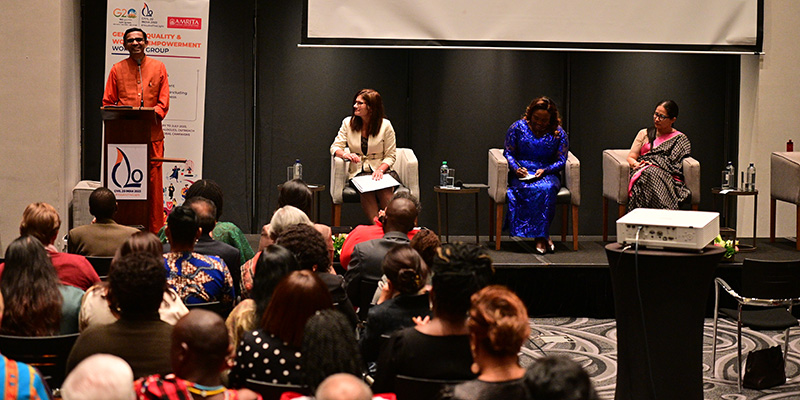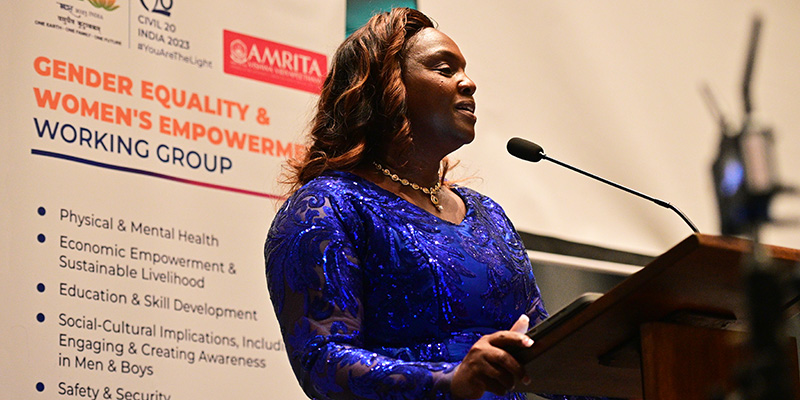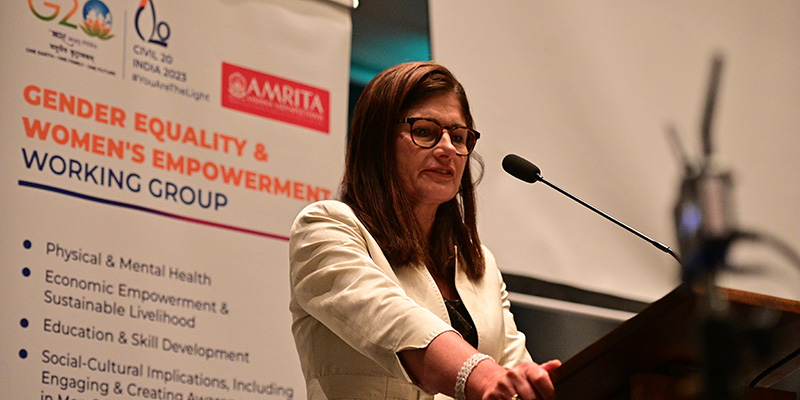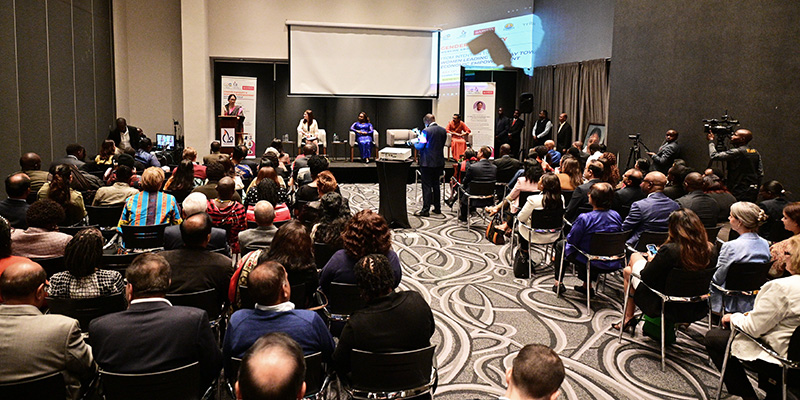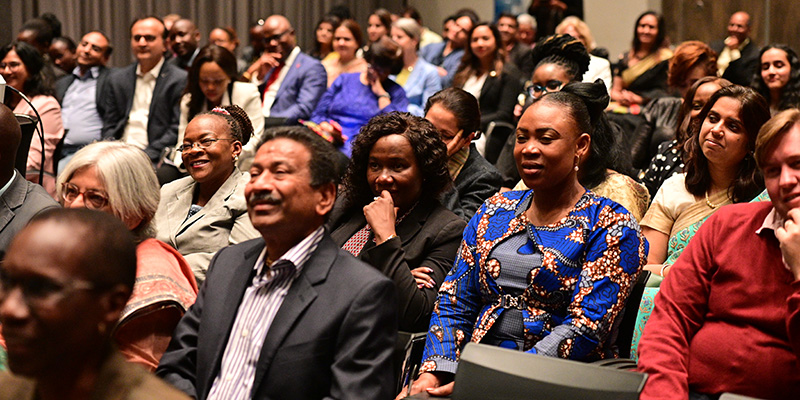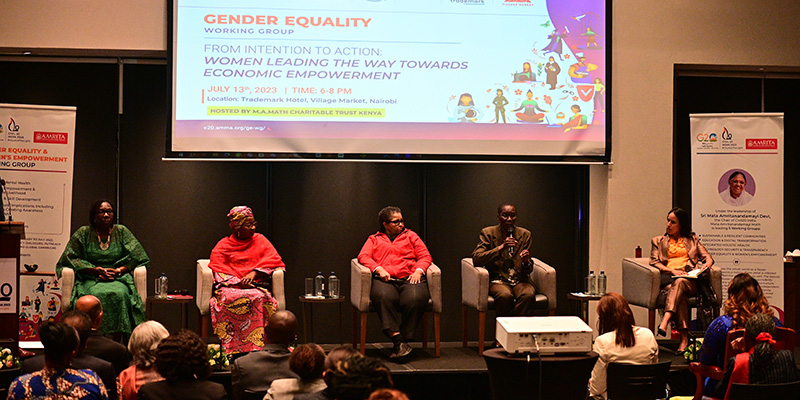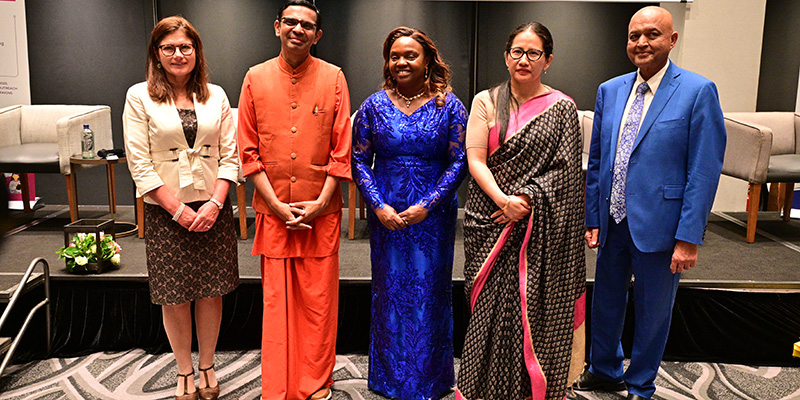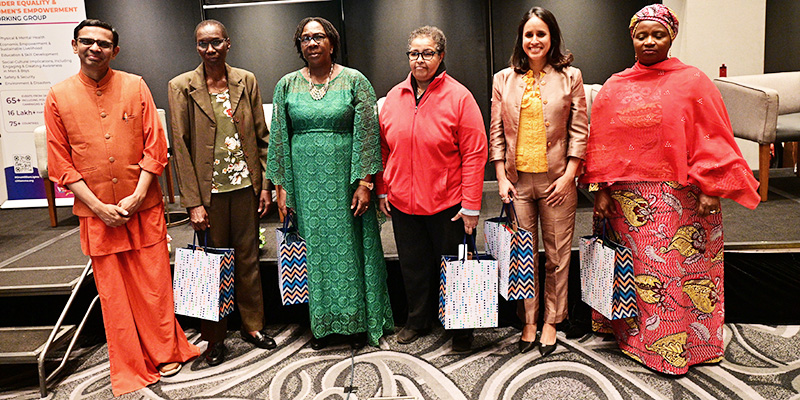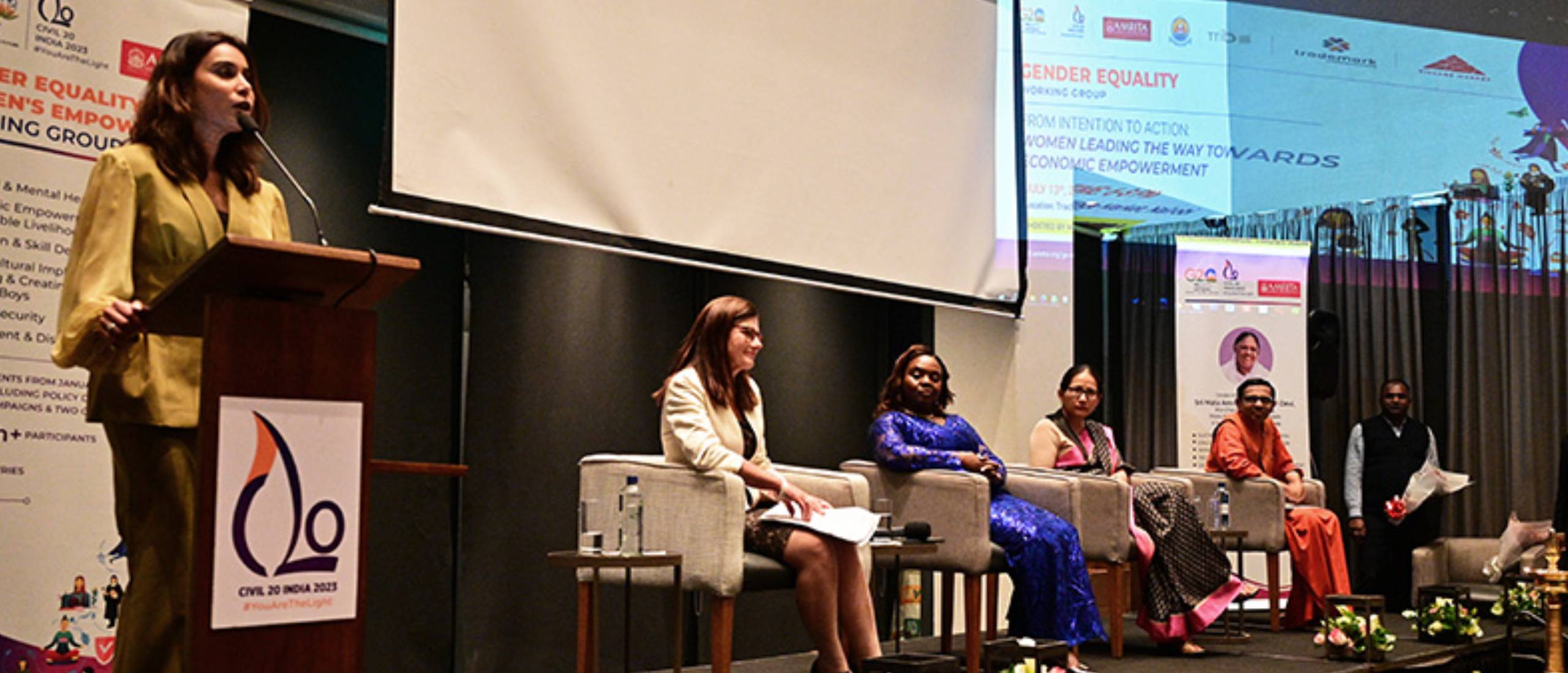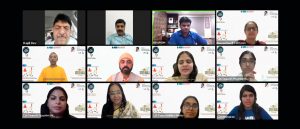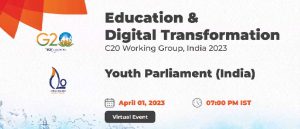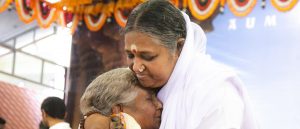“From Intention to Action: Women Leading the Way towards Economic Empowerment” – A Panel Discussion organized by the C20 Gender Equality & Women’s Empowerment Working Group and the Mata Amritanandamayi Math Charitable Trust Kenya, and held at the Trademark Hotel, Nairobi, Kenya.
The event was attended by 104 participants from India, Kenya and USA, and live-streamed for global audiences.
Speakers & Panellists
- H.E. Pastor Dorcas Rigathi, the Spouse of the Deputy President of the Republic of Kenya
- Hon. Namgya Khampa, the Indian High Commissioner
- Henriette Geiger, EU Ambassador
- Dr. Asha Mohammed, Outgoing Secretary General of Red Cross, Kenya
- Zaynah Khanbhai, Co-Founder of Merging Mundos and Founder and President of Espartanos Africa
- Martha Muhwezi, Executive Director of the Forum for African Women Educationalists
- Dr. Winnie Mitullah, Professor and UNESCO UNITWIN Chair, Institute for Development Studies, University of Nairobi
- Faiza Jama Mohamed, Africa Regional Director, Equality Now
Swami Shubamritananda Puri, C20 International Coordinator, represented the C20 Chair, Sri Mata Amritanandamayi Devi.
The panel discussion was moderated by Jeff Koinange, Award Winning Journalist and Talk Show Host, and presented by Tanya Martin, Embracing the World Kenya.
The speakers and panellists engaged in thought-provoking discussions on crucial topics such as gender-based violence, women’s leadership in policy implementation, inclusive economic empowerment initiatives, the role of civil societies in promoting education, women’s political participation, and the challenge of gender biases and stereotypes. Valuable insights were shared, and actionable recommendations were proposed to empower women economically and foster sustainable development.
The event started with a message from the C20 Chair, Sri Mata Amritanandamayi Devi, who has been supporting women and girls through many projects. In Her words: “Empower women and children from marginalized groups, holding their hands as they move ahead. Do not let their hidden abilities go to waste. This in turn will benefit them and their societies.”
Dr. Bhavani Rao, Coordinator of the C20 Gender Equality & Women’s Empowerment Working Group, shared a video message in which she gave an overview of the work done by the Working Group. She mentioned Amma’s commitment to serve women and the support provided by the Mata Amritanandamayi Math to provide INR 50,000 crore (5.4 millions Euros) for women’s empowerment, especially pregnant mothers, and to help people with disabilities. 150,000 Euros have already been pledged to a UN women project to support the creation of safe spaces for women and children affected by war in different parts of the Ukraine and the role of civil society in aiding in policy implementation.
H.E. Pastor Dorcas Rigathi, the Spouse of the Deputy President of the Republic of Kenya, emphasised the importance of an inclusive conversation on gender equality and women’s empowerment. In her words: “You cannot empower one gender and have a balanced society you must bring everyone along. Empowered women bring about empowered families.”
Hon. Namgya Khampa, the Indian High Commissioner, spoke about the importance of shifting from women development to women-led development. Mrs. Khampa cited Chandrayaan 2, India’s second lunar mission, led by women scientists amongst many examples of women helming pivotal roles in the country’s progress. She also gave several practical policy examples to empowering and enhance the lives of girls and women in the country.
Henriette Geiger, EU Ambassador, reminded us that gender equality is still an issue even for the most advanced nations in Europe. As the EU grapples with gender pay gaps, the importance of the Gender Action Plan by the European commission has brought in a lot of structural accountability and is compelling organisations to make gender equality more than a checkbox exercise and a key focus area to work towards.
To conclude the first part of the event, Swami Shubamritananda Puri brought to light the fact that Africa has the highest female led entrepreneurs at 25%, beating the world average of 17%. He also stated that when we are talking about economic empowerment in the world, this goal can only be achieved when men and women tread the path of action guided by right intentions, hand in hand. He suggested that we need to equip women by enhancing their financial, digital, and legal literacy, and the training should start from schools. In conclusion, he stressed that the world has to learn to see African women as a fighter, rather than with a victim’s mindset.
As the panel discussion started, Dr. Asha Mohamed emphasized the need for comprehensive integrated services being critical for women’s economic participation. She mentioned the need to go to the women at the ground to really know which interventions need to be scaled.
Faiza Mohamed stressed the importance of effective strategies to combat gender-based violence, advocating for strong laws and policies to protect women and deter violence. She stressed on the focus on girls education and the need to stop child marriages and ending female genital mutilation.
Dr. Winnie Mitullah highlighted the need for women to scale up their enterprises and move into the formal economy, for which resources and access to resources needs to be enhanced. Re-engineering social protection is required so that more women can be a part of it. She also reminded us how women are the natural safe-keepers of the environment.
Zaynah Khanbhai urged the audience to challenge their own biases and focus on individual action instead of being passive spectators and consumers of dismal statistics. She also proposed using the constitution as means to teach English in schools and promote legal awareness of rights of women and girls. She advised on how the government can incentivize companies to support women-owned enterprises as a means to achieve inclusion and advance economic empowerment.
Dr. Martha Muhwezi underscored the vital role of education in empowering girls and called for comprehensive, integrated services and interventions to address gender-based violence and ensure girls’ access to education programs.
Overall, there was a general consensus on making schools the starting point for ushering in gender equality, and urging lawmakers to re-examine sexist penal codes.
